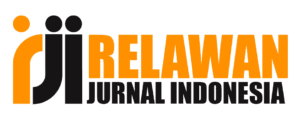Rekrutmen Partai Golkar Pada Pemilu Legislatif 2019
(Studi Kasus Alokasi Kursi Dapil Kabupaten Tangerang A Dan B)
Abstract
This study describes the Golkar Party recruitment process in the 2019 Legislative Election with a case study of the allocation of seats in the Tangerang Districts A and B districts. The problem of recruitment has an impact on the distribution of legislative candidates in allocating DPRD seats, in PKPU RI Number 16 Year 2017 Concerning the Arrangement of Electoral Districts and Chair Allocation Members of the Regency/City Regional People's Representative Council in the General Election, that the seat allocation is a determination of the number of seats in an electoral district. This study used qualitative methods by conducting in-depth interviews and literature studies through sources relevant to this research. The results of the study show that the Golkar Party recruitment pattern is still using the old pattern, namely by using the recruitment system during the new order and trying to retain traditional (old) voters. In the upcoming recruitment, Golkar must involve various elements in the community and the beginning of the recruitment must start from the "grassroots" which can gradually occupy the party management positions.
Keywords: Recruitment, Golkar Party, Seat Allocation, and Electoral District.
References
Almond, G., & Bingham, G. (1988). A Word View Fourth Editions. London.
Amal, I. (1996). Teori-Teori Mutakhir Partai Politik. Yogyakarta: TWC.
Diamond, L. (2001). Political Parties and Democracy. Baltimore and London: The John Hopkins University Press.
Eko, S. (2003). Membuat Rekrutmen Legislatif Lebih Bermakna. In Menyukseskan Penyelenggaraan Pemilihan Umum 2002 di Provinsi DIY. Yogyakarta.
Firmanzah. (2008). Mengelola Partai Politik komunikasi dan Positioning Ideologi Politik di Era Demokrasi. Jakarta: Yayasan Obor Indonesia.
Firmanzah. (2011). Mengelola Partai Politik, Komunikasi dan Positioning Ideologi Politik di Era Demokrasi. Jakarta: Yayasan Obor Indonesia.
Gatara, S. (2007). Sosiologi Politik:Konsep dan Dinamika Perkembangan Kajian. Bandung: CV. Pustaka Setia.
Hastuti, P. (2018). Redesign struktur internal partai politik dalam bingkai kontestasi pemilihan umum di Indonesia. Mimbar Yustitia, 2(1).
Katz, R. S., & Crotty, W. (2006). Handbook of Party Politics. London: Sage Publication.
Koirudin. (2004). Partai Politik dan Agenda Transisi Demokrasi: Menakar Kinerja Partai Politik Era Transisi di Indonesia. Yogyakarta: Pustaka Pelajar.
Maor, M. (1997). Political Parties & Party Systems: Comparative Approaches & the British Experience. London and New York: Routledge.
Norris, P. (1995). Framing Terrorism: The News Media The Government, and The Public. New York: Routledge.
Prasojo, T. A. (2013). Pola Rekrutmen Calon Anggota Legislatif (Caleg) Dari Partai Golkar Untuk Dprd Jateng Periode 2014-2019. POLITIKA, 4(2).
Putra, F. (2003). Paradigma Kritis Dalam Studi Kebijakan Publik. Jakarta: Pustaka Pelajar.
Rehfeld, A. (2005). The Concept of Constituency: “Political Representation, Democratic Legitimacy, and Institutional Design.” Cambridge University Press.
Sarofah, R., Purwaningsih, T., & Nurhakim, N. (2019). Analysis of Local Electoral Governance under Electoral Integrity Perspective in Yogyakarta City 2017. Journal of Government and Civil Society, 2(2), 107–125. https://doi.org/http://dx.doi.org/10.31000/jgcs.v2i2.1027
Sarofah, R., Widodo, B. E. C., Swarga, A. B., & Sakir, S. (2016). Institutionalization of Good Governance Strategy in the Process of Legislatif Elections. In International Conference on Ethics in Governance. In International Conference on Ethics in Governance. Atlantis Press. https://doi.org/https://doi.org/10.2991/iconeg-16.2017.57
Surbakti, R. (2007). Memahami Ilmu Politik. Jakarta: Grasindo.
Syamsuddin, H. (2016). Demokratisasi Partai dan Dilema Sistem Kepartaian di Indonesia. Jurnal Penelitian Politik, 3(1), 67–76.
Wardhana, A. F. G., & Ghafur, J. (2018). Rekonstruksi Politik Hukum Presidential Threshold Ditinjau Dari Sistem Presidensial dan Penyederhanaan Partai Politik. In Seminar Nasional Hukum Universitas Negeri Semarang (pp. 741–760). Retrieved from https://journal.unnes.ac.id/sju/index.php/snh/article/view/26935/11862
Witianti, S. (2007). Rekrutmen Politik dan Kinerja Legislatif pada Pemilu 2004. Publicsphere, 1(1).
Zuhro, R. S. (2019). Demokrasi dan Pemilu Presiden 2019. Jurnal Penelitian Politik, 16(1).
Copyright (c) 2019 Journal of Governance and Local Politics

This work is licensed under a Creative Commons Attribution-NonCommercial-NoDerivatives 4.0 International License.










